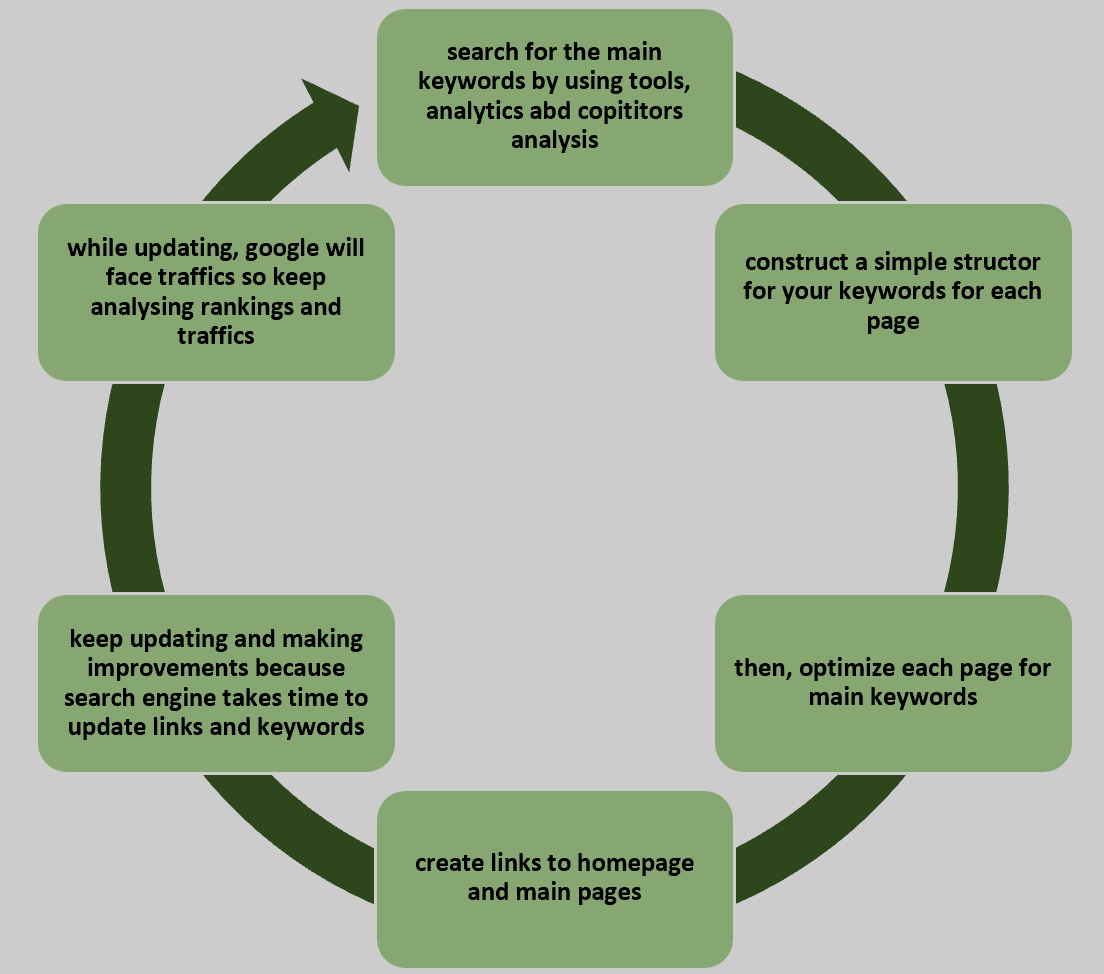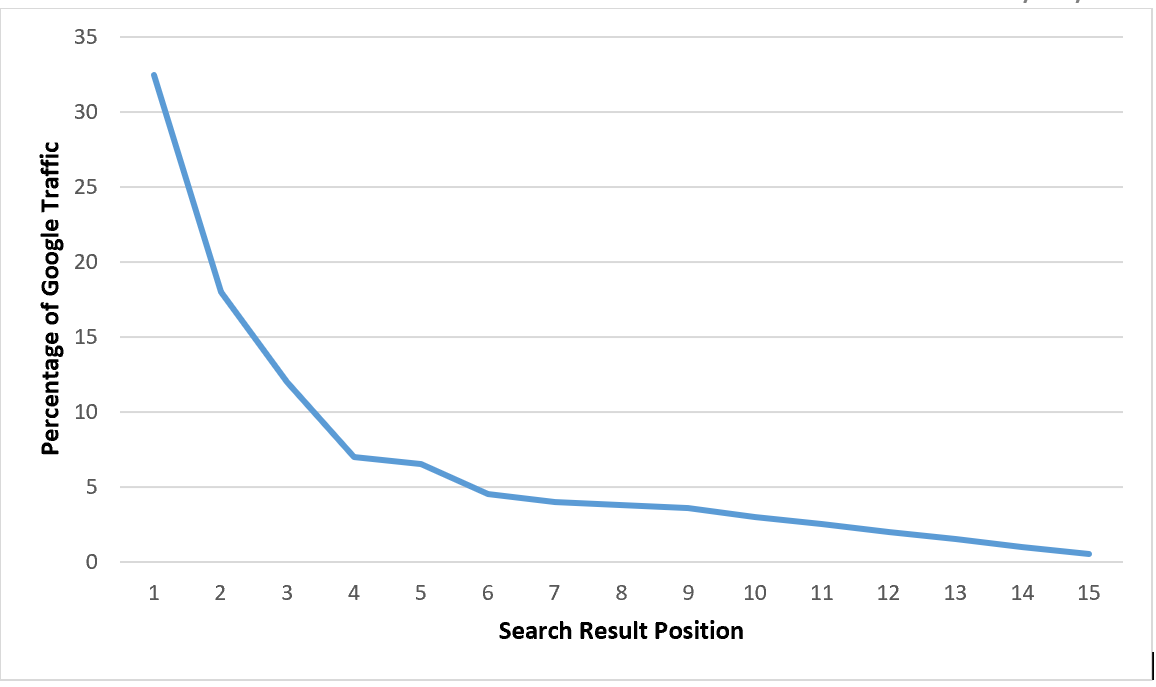How Websites become the first choice on Google
By: Vareen Azad, Date: 08/11/2018
Search engines take advantage of reverse broadcast networks to help save time and money. They are moment answer frameworks that give ultra-focused on publicizing. Numerous individuals think web indexes have a shrouded motivation. This basically isn't valid. The objective of the search engine is to give brilliant substance to individuals looking through the Internet. Web search tools with the broadest conveyance arrange offer the most publicizing space. Google is viewed as the internet searcher with the best significance. Their advancements control the heft of web seeks. Specifically, Search engine optimization (SEO) refers to methods that help your website rank higher in organic (or “natural”) search results, thus making your website more visible to people who are looking for your invention or service with search engines.
Search engine optimization (SEO) is frequently about making little alterations to parts of your site. At the point when seen separately, these progressions may appear incremental enhancements, however when joined with different improvements, they could noticeably affect your site's client experience and execution in natural indexed lists. You're likely officially acquainted with a significant number of the subjects in this guide, since they're basic elements for any page, however you may not be making the most out of them.
So, why is it important for your business‟ website to be listed on search engines?
On Google, there are more than 694,000 ventures search each second. Consistently that your site isn't recorded on Google, you are conceivably passing up hundreds, if not a huge number of chances for somebody to visit your site, read your substance, and possibly purchase your item or administration. Honing SEO rudiments, and additionally further developed procedures after those, can radically enhance your website’s capacity to rank in the web indexes and get found by your potential clients.
How Search Engines Work?
Search engines have one objective – to provide you with the most relevant results possible in relation to your search query. If the search engine is successful in providing you with information that meets your needs, then you are a happy searcher. And happy searchers are more likely to come back to the same search engine time and time again because they are getting the results they need. So the below figure is the process of the search engine optimization:
In order for a search engine to be able to display results when a user types in a query, they need a document of accessible data to look over. Each web crawler has exclusive techniques for social affair and organizing site content. Despite the particular strategies or techniques utilized, this procedure is called indexing. Search engines actually attempt to check the whole online universe and file all the data so they can indicate it to you when you enter a pursuit inquiry. How would they do it? Each web crawler has what are alluded to as bots, or crawlers, that always examine the web, ordering sites for substance and following connections on every page to different pages. On the off chance that your site has not been ordered, it is unthinkable for your site to show up in the indexed lists. Except if you are maintaining an obscure online business or endeavoring to swindle your way to the highest point of the internet search engine results page (SERP), chances are your website has already been indexed.
Getting on Google’s first search result Organically
There are some ways to get on the Google’s first search result, and one of them is the organic, or natural, method and they are
Website structure:
Having a good and organized structure while building your website will help users find the information they want in the quickest and simplest possible way, this is your main objective. There are some phrases that users normally search and every website must have them like:
- About Us –A well designed about page that contains important and clear history about the company, business, person,…etc will help to improves the credibility and reliability of a web site.
- Contact Page –contact information like email, phone, map and business address will help users to feel secure and trust more about the content.
- Privacy Policy –Search engines, like Google, like it when websites have a privacy policy in place.
- URL Structure:The arrangement of your permalinks should describe the basis of the content of each webpage.
Website content:
- Quality and Length of Your Page Content- developed website's pages must be full of unique and useful information that will benefit your ideal customer. The longer the better, as long as it is high quality. The goal of google in providing search engine result is to show users the best and most relevant information according to what they are searching for. So creating quality content website means many different things to many different people, but there are some specific features that must be focused on and they are:
- Adding value: Ensure the substance content of what you post is really helpful for your customers. This will likewise help create inbound connections, which thus will support your rankings in Google.
- Growing readability. Ensure you're utilizing right sentence structure and spelling. Figure out how to deliver content for the web, which implies short sections, short sentences, and heaps of blank area on the page.
- Avoid advertisements above the fold- One of Google's most up to date activities needs to do with bringing down the rankings of destinations that utilization notices over the overlap. Except if you're producing critical income from outsider promoting, this shouldn't be an issue.
- Pictures: There is nothing more awful than arriving on a website page and being looked with heaps of content. Not exclusively are pictures an incredible method to separate segments of content, yet they likewise fill in as a chance to speak with the web indexes. Since web indexes can't tell what an image is by checking it, they search for hints in two spots. Each image you transfer to your site will have a record name. At the point when the image is embedded on your site, the image's record name really lives in your site's sources code, or HTML. Since the web search tools filter your site's code, you should utilize document names that depict the image. For instance, „red-sneakers velcro.jpg‟ is substantially more helpful than „pic12345.jpg‟. Furthermore, you can give the web indexes an additional hand by including alt labels on all photos on your site. Alt labels are short pieces of code that enable you to label every photograph on your site with a short content ad spot.
- Mobile Friendly Website– now a day most of individuals are currently utilizing cell phones to look for data on the web. So your site ought to be streamlined for cell phones and simple to explore so clients on any gadget can discover what they require rapidly and effortlessly.
A website which is mobile friendly is more likely to reach a better rank in Google. Google launched some search algorithms. Algorithms are computer programs that look for clues to give you back exactly what you want.” (Google InsideSearch “Algorithms”). The algorithm was aimed to give an improvement to mobile-friendly pages in Google’s mobile search results. This change will affect mobile searches in all languages worldwide and will have an important influence in search results. Thus, users will find it easier to get appropriate, high quality search results that are adjusted for their devices.
Google algorithm’s update:
Panda
The official name of this algorithm is Panda which is published on February 24, 2011. The updated developed to decrease the occurrence of low-quality, thin content in the search results, and to return unique, compelling content in the search result.
Penguin
Penguin lunched on April 24,2012 which was created for targeting link spam and manipulative link building practices and the objective was to down-rank sites whose links it deems manipulative. Since late 2016, Penguin has been part of Google’s core algorithm; unlike Panda, it works in real time.
Hummingbird
Hummingbird algorithm lunched on August 22, 2013. It helps Google better interpret search queries and deliver results that match searcher intent.
Pigeon
Pigeon algorithm lunched on July 24, 2014 (US) and December 22, 2014 (UK, Canada, Australia). One of Google’s biggest-impact algorithm updates was implemented for the purpose of local search results, and local businesses normally saw the effects of the update in their website’s analytics data.
Mobile
On April 21, 2015, Google lunched mobile-friendly update that guarantees mobile-friendly pages’ rank at the top of mobile search, while pages not enhanced for mobile are filtered out from the SERPs.
RankBrain
On October 26, 2015 google lunched RankBrain algorithm which is part of Google’s Hummingbird algorithm. It is used to sort live search results to help give users a best fit to their search query.
Possum
The Possum update lunched on September 1, 2016 ensured that local results vary more depending on the searcher’s location: the closer you are to a business’s address, the more likely you are to see it among local results. Possum also resulted in greater variety among results ranking for very similar queries, like “dentist denver” and “dentist denver co.” Interestingly, Possum also gave a boost to businesses located outside the physical city area.
Fred
Fred lunched on March 8, 2017. Which is the latest of Google’s updates, Fred aims websites that interrupt Google’s webmaster guidelines.
- Creating Backlinks: Backlinks creates when an external website links to yours. Many people goes into link acquisition before they’ve creating a strong foundation of their website. A well-optimized website makes your link building more effective. Link building strategy works for some aims like first emerged as a means of increasing your ranks and visibility in search engines results. Google takes two main things into account when dragging in pages for its search engine results pages (SERPs); the significance of a page to the query, and the authority of that page. It measures authority based on the types of sites linking to that page, as well as to the entire domain, so at the end, the more links that is provided in the website, the higher your pages are going to rank.
- Keywords in Page Content– while entering keywords to the search engine, google will search for these keywords and if your website has these key words in the text and titles of the pages, you will rank better for those keywords on googles search result. Write your content for humans, but do keep Google in mind. Don't use too many keywords. When in hesitation, keep it natural sounding. If you're going to accomplish the goal of getting to the top of Google, that goal wants to be within your reach in the first place. Therefore, you need to pick the right keywords.
To find the best keyword for your business you have to understand exactly how keywords work, and how they will make back their money from local search engine optimization and pay per click campaigns. One of the most fundamental steps when starting your search engine optimization campaign, is finding targeted keywords that prospects will use when finding your local business online. In fact, if you were to add up all search engine traffic that comes from the most popular keywords, it would not even come close to the amount of traffic that comes from searches using those more unique queries. This is called the theory of the long-tail. So long-tail keywords are so effective because they target people who are looking to perform a specific action, like buy something, or looking for a specific piece of information, like a how-to or a service that can solve their problem. By choosing to optimize with long-tail keywords, you will find it easier to rank on the search engines, drive qualified traffic, and turn that traffic into leads and customers. So long tail keywords are gold. As the below chart shows that The page that sits in the first position for a search query gets 32.5% of all the clicks for that search. By Anything below 4th position and you’re below 10%. Which means that the page in first position will get five times more clicks as the one in 5th position. That means going after keywords with less competition can make up for a keyword having less overall search queries. That’s because you’re more likely to get more clicks from less competitive terms.
Domain & URL
- Authority of Domain Name - The more you've claimed the domain, the better. The more pages of value content you have on your domain name, the better. Additionally, incorporate watchwords in your area name in the event that you can (despite the fact that Google says this does not specifically affect your rankings, it could help impact a client to tap on your site versus a competitor's).
- Secure Pages - Your site pages should load by https so they are secure. Google, and ordinary people, as to see secure pages, regardless of whether you're not preparing charge cards or acquiring individual data. In their Chrome program, Google is presently marking all pages that heap with a SSL as Not Secure. Try not to be one of these devious sites...get a SSL introduced by your web facilitating organization with the goal that every one of your page’s stack safely.
- URL Structure - If your page URL's are human readable, that's a good thing.
References:
- Rigotti, B. (2017). How to Get Your Website on the First Page of Google - Step by Step Guide. [online] Cristers Media. Available at: https://cristersmedia.com/how-do-i-get-my-website-on-the-first-page-of-google/ [Accessed 5 Nov. 2018].
- Berman R, Katona Z. The Role of Search Engine Optimization in Search Marketing. SSRN Electronic Journal. 2011. doi:10.2139/ssrn.1745644
- Shreves R. Joomla! Search Engine Optimization. Birmingham: Packt Pub; 2012.
- Google Mobile Friendly Algorithm Coming April 21st, 2015. TheeDesign. https://www.theedesign.com/blog/2015/google-mobile-friendly-algorithm-coming-april-21st-2015. Published 2018. Accessed November 8, 2018.
- Search Engine Optimization (SEO) Starter Guide - Search Console Help. Support.google.com. https://support.google.com/webmasters/answer/7451184?hl=en. Published 2018. Accessed November 8, 2018.
- Neely P. Why Long Tail Keywords Are SEO Gold - GetResponse Blog. GetResponse Blog - Online Marketing Tips. https://blog.getresponse.com/long-tail-keywords-seo-gold.html. Published 2018. Accessed November 8, 2018.
- Inside Search. Fighting Spam. [Weblog] Available from: http://www.google.com/insidesearch/howsearchworks/fighting-spam.html (Accessed November 13, 2018)




